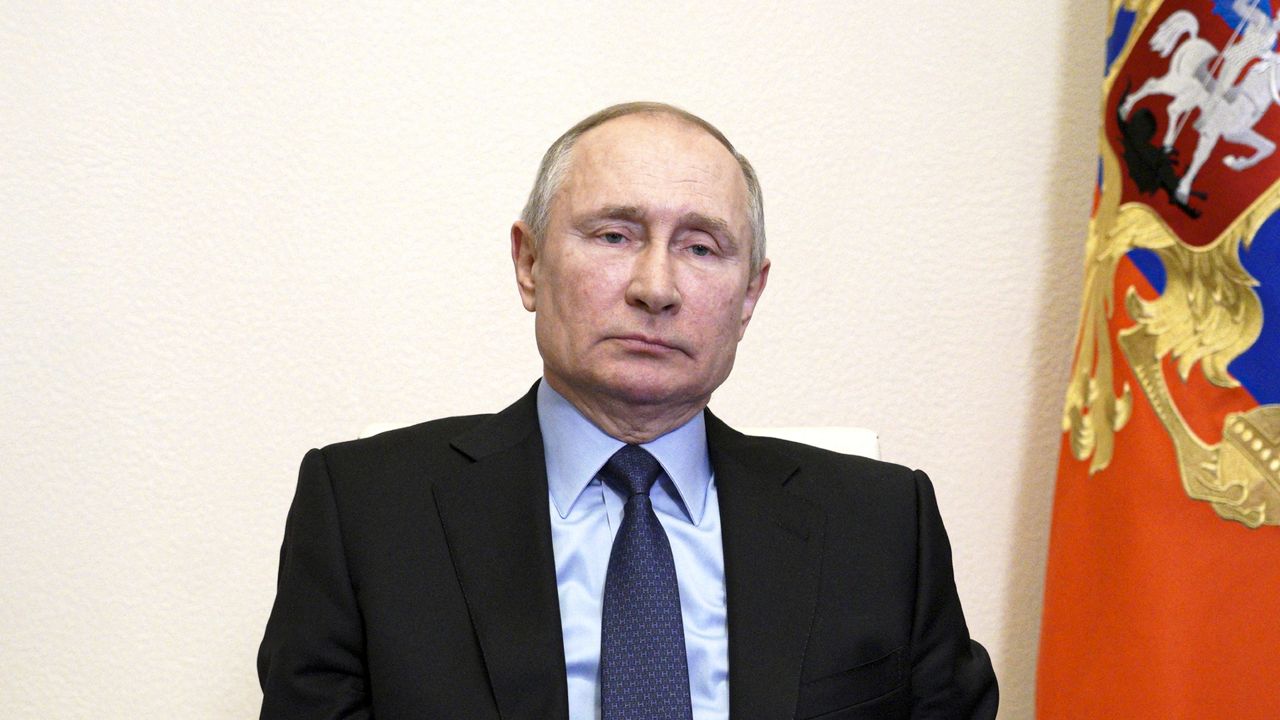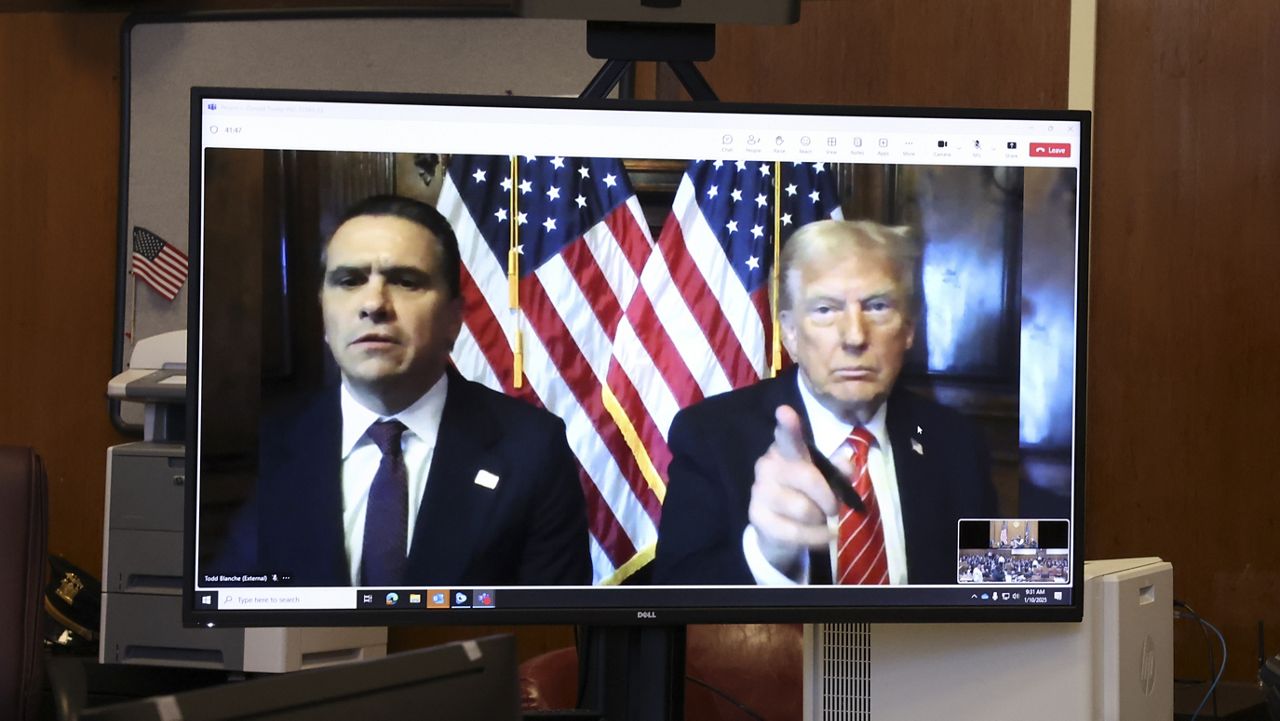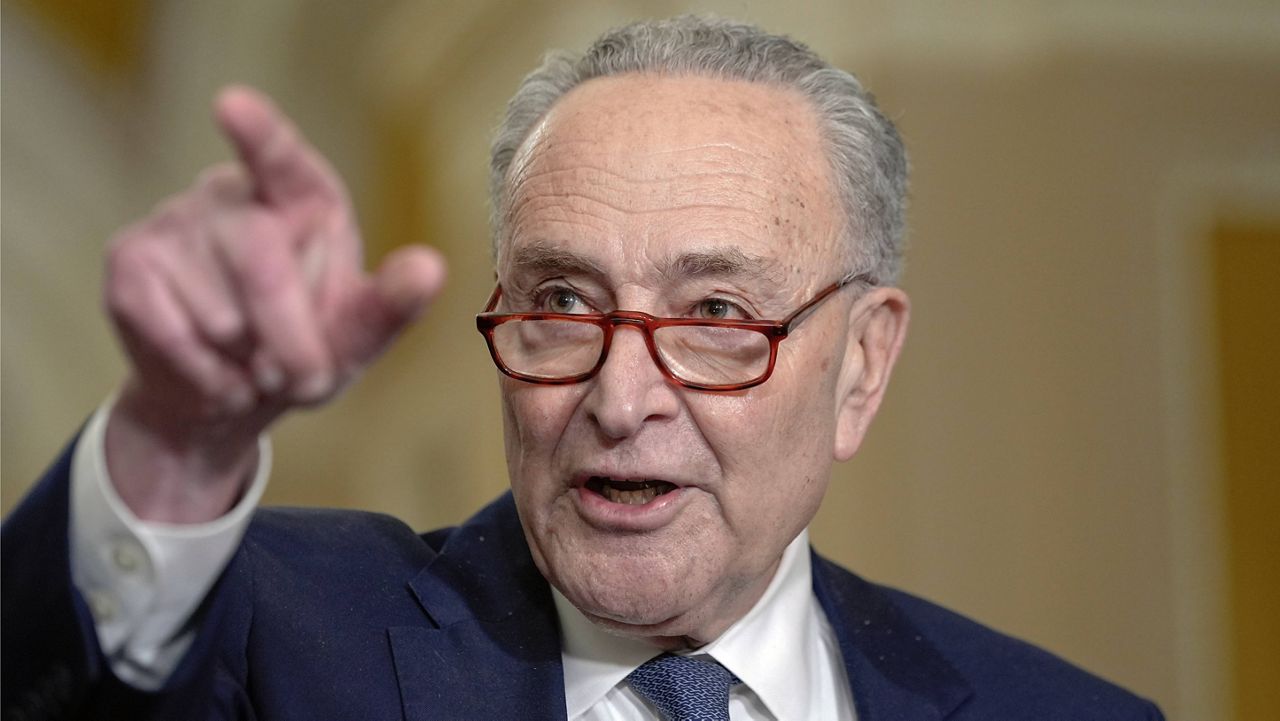According to the U.S. intelligence community, Russia and Iran employed separate, sweeping campaigns to influence the outcome of the 2020 presidential election, but neither country actively altered votes in its attempts to do so.
In the declassified report released Tuesday compiled by the country’s top intelligence and security agencies, Director of National Intelligence Avril Haines wrote officials found "no indications that any foreign actor attempted to alter any technical aspect of the voting process" in the election.
The report is the most detailed and comprehensive assessment of the array of foreign threats to the 2020 election.
Officials from the Department of Justice (DOJ), the Department of Homeland Security (DHS), the Federal Bureau of Investigation (FBI) and the Cybersecurity and Infrastructure Security Agency (CISA) began their investigation in mid-February. Haines presented the report to President Biden before declassifying parts of the findings on Monday.
The agencies first attempted to identify if any foreign actors had attempted to interfere with vote tabulation, election infrastructure, or timely result reporting of results, and to determine the extent of said breach; officials were also trying to see if foreign actors were targeting specific campaigns or politicians.
Ultimately, officials found the second scenario the most likely.
“The Departments investigated multiple public claims that one or more foreign governments owned, directed or controlled election infrastructure used in the 2020 federal elections; implemented a scheme to manipulate election infrastructure; or tallied, changed or otherwise manipulated vote counts,” officials said in a statement released Tuesday. “The Departments found that those claims were not credible.”
The report did, however, identify “several incidents” of Russian and Iranian-backed actors attempting to influence the elections. Both countries have previously denied accusations that they attempted to sway U.S. elections.
Russia’s President Vladimir Putin was likely "aware of and probably directed" a number of actions attempting to harm then-candidate Joe Biden’s chances at being elected, which primarily included narratives of “misleading or unsubstantiated allegations against President Biden,” the report said.
The report specifically mentions Putin’s probable direction of Andriy Derkach, a Ukrainian lawmaker who was sanctioned by the Treasury in September of last year for being an “active Russian agent” and attempting to sway the presidential election. Derkach met with Trump's personal attorney Rudy Giuliani during the campaign.
At the time, Derkach was accused of releasing heavily edited recordings of Biden speaking while vice president with Ukraine’s then-president in an effort to link him to unsubstantiated corruption. The tapes concerned Biden’s son, Hunter Biden, who at the time was a board member for Ukraine-based energy company Burisma Holdings. Tuesday’s report says Derkach was likely instructed to do so by the Kremlin, as Putin views Biden as “part of a reflexively anti-Russia US foreign policy establishment.”
“The Intelligence Community Assessment released today underscores what we all knew already – that Russia interfered to support former President Trump, hurt President Biden, and undermine confidence in our electoral process," Rep. Adam Schiff (D-CA), the head of the House Intelligence Committee, said in a statement.
"Through proxies, Russia ran a successful intelligence operation that penetrated the former president’s inner circle," Schiff added. "Individuals close to the former president were targeted by agents of Russian intelligence including Andriy Derkach and Konstantin Kilimnik, who laundered misinformation into our political system, with the intent of denigrating now-President Biden and damaging his candidacy."
Unlike the 2016 elections, in which Russian hackers infiltrated the Democratic National Committee’s computer network, officials did not see evidence of Russian attempts to hijack election infrastructure.
While Russia was attempting to prevent Biden’s presidency, officials say Iranian actors were aiming for the opposite.
The report says officials have “high confidence” that top Iranian leaders — including Supreme Leader Ali Khamenei — authorized an “influence campaign...intended to undercut the reelection prospects of former President Trump.”
Iran primarily focused its social media and propaganda campaign around sowing discord across the U.S. on hot-button topics, including racial inequalities and the ongoing coronavirus pandemic.
In one specific instance, Iranian actors sent fraudulent emails to registered Democratic voters across several states. Disguised as members of the alt-right “Proud Boys” group, the emails threatened the targets to change their party affiliation and vote to reelect Donald Trump.
Iran did not attempt to target or manipulate any election infrastructure, the report added.
China, a country with an adversarial relationship to former president Trump, did not make an effort to sway the election one way or another.
“China sought stability in its relationship to the United States and did not view either election outcome as being advantageous enough for China to risk blowback if caught,” the report concluded.
In a dissenting note, the National Intelligence Officer for Cyber wrote that Chinese officials took “at least some steps to undermine former President Trump's reelection chances, primarily through social media and official public statements and media." Still, the official ultimately agreed with the overall assessment that China was “primarily focused on countering anti-China policies.”
A range of other state-backed actors also attempted to sway the elections, although the report notes they were all “smaller in scale” than those conducted by Iran and Russia.
The report found that Secretary General Hassan Nasrallah, leader of the Lebanese Hezbollah, and Cuban officials separately supported minimal efforts to undermine Trump’s chances of being reelected. Venezuela’s Nicolas Maduro similarly “had the intent, though probably not the capability” to sway public opinion against Trump.
The Associated Press contributed to this report.









